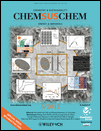
ChemSusChem
Scope & Guideline
Exploring the Frontiers of Sustainable Chemistry
Introduction
Aims and Scopes
- Sustainable Energy Solutions:
Research on renewable energy technologies, including solar cells, fuel cells, and batteries, with a focus on enhancing efficiency and reducing environmental impact. - Biomass and Waste Valorization:
Studies on the conversion of biomass and waste materials into valuable chemicals, fuels, and materials, emphasizing circular economy principles. - Electrochemistry:
Innovative electrochemical processes for energy storage, conversion, and environmental applications, including CO2 reduction and battery technology. - Catalysis for Sustainability:
Development of new catalytic processes and materials that enable more efficient and environmentally friendly chemical transformations. - Green Chemistry Approaches:
Research promoting the use of sustainable and non-toxic solvents, reagents, and methodologies in chemical synthesis and processing. - Material Science for Sustainable Applications:
Exploration of advanced materials, including nanomaterials and composites, that contribute to sustainability in energy, catalysis, and environmental remediation.
Trending and Emerging
- Advanced Energy Storage Technologies:
A significant increase in research focused on next-generation batteries, including lithium-sulfur and sodium-ion batteries, highlighting the need for high-performance and sustainable energy storage solutions. - Photocatalytic CO2 Reduction:
An emerging trend in utilizing photocatalytic processes for CO2 reduction to valuable chemicals, driven by the need to mitigate climate change and harness renewable energy. - Biocatalysis and Enzymatic Processes:
Growing interest in biocatalysis as a sustainable method for chemical transformations, emphasizing the role of enzymes in efficient and environmentally friendly synthesis. - Deep Eutectic Solvents and Green Chemistry:
An increase in the exploration of deep eutectic solvents as eco-friendly alternatives to traditional solvents, reflecting a broader trend towards green chemistry practices. - Sustainable Polymer Development:
Emerging research on biodegradable and recyclable polymers, driven by the urgent need to address plastic pollution and promote circular economy principles.
Declining or Waning
- Traditional Fossil Fuel Chemistry:
Research related to traditional fossil fuel chemistry has become less prominent as the focus shifts towards renewable energy sources and sustainable alternatives. - Conventional Solvent Chemistry:
Studies relying on conventional organic solvents are declining in favor of greener alternatives, such as deep eutectic solvents and solvent-free reactions. - Non-Electrochemical Processes:
There is a noticeable reduction in non-electrochemical methods for chemical transformations, as electrochemical approaches gain popularity due to their sustainability benefits. - Single-Use Plastics:
Research directly focused on single-use plastics is waning, as the emphasis shifts towards recycling and upcycling methodologies that align with sustainability goals. - Low-Impact Chemical Synthesis:
Interest in low-impact synthesis methods has decreased as more researchers aim for innovative, high-efficiency processes that incorporate sustainability at their core.
Similar Journals

Carbon Energy
Exploring the future of renewable energy and materials science.Welcome to Carbon Energy, an esteemed open-access journal published by WILEY that focuses on cutting-edge research in the field of energy and materials science. Since its inception in 2019, this journal has quickly established itself as a leading platform for disseminating impactful findings and innovations related to carbon-based energy solutions, renewable resources, and sustainability practices. With its impressive Q1 rankings in multiple categories—including Energy (miscellaneous), Materials Chemistry, and Renewable Energy—Carbon Energy is recognized for delivering high-quality, peer-reviewed content that meets the rigorous standards of the academic community. Through its open-access model, the journal ensures wide accessibility of research findings, making it an invaluable resource for researchers, professionals, and students alike. As we look toward the future, Carbon Energy aims to further its mission of advancing sustainable energy technologies and promoting interdisciplinary collaboration in tackling global energy challenges.

Green Chemical Engineering
Fostering collaboration in sustainable chemical innovation.Green Chemical Engineering, an esteemed journal published by KEAI PUBLISHING LTD, plays a pivotal role in advancing the field of sustainable chemical engineering. With an Open Access policy since 2020, this journal facilitates the free exchange of cutting-edge research and innovations that address critical environmental challenges. Based in China, it has rapidly gained recognition with impressive category quartiles, ranking Q1 in numerous relevant fields including Catalysis, Chemical Engineering (miscellaneous), Filtration and Separation, and Process Chemistry and Technology. Its presence in Scopus highlights its significance, with top rankings (e.g., Rank #4/19 in Filtration and Separation) placing it in the upper echelons of chemical engineering literature. Designed for researchers, professionals, and students alike, Green Chemical Engineering aims to foster a collaborative platform for the dissemination of pioneering work that contributes to a greener and more sustainable future.
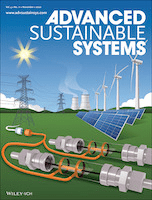
Advanced Sustainable Systems
Elevating Sustainability Research to New HeightsAdvanced Sustainable Systems is a premier academic journal published by WILEY-V C H VERLAG GMBH, dedicated to the dynamic fields of environmental science and renewable energy. With an ISSN of 2366-7486, this journal has rapidly established its significance within the scientific community, achieving a prestigious Q1 ranking in both Environmental Science (miscellaneous) and Renewable Energy, Sustainability and the Environment categories as of 2023. Spanning the converged years from 2017 to 2024, it serves as a vital platform for researchers and practitioners alike, facilitating the dissemination of innovative ideas and groundbreaking research that drive sustainability initiatives globally. Although not an Open Access publication, its contributions are invaluable, reflected by its commendable Scopus rankings—#28 out of 233 in General Environmental Science and #49 out of 270 in Renewable Energy. As we face pressing environmental challenges, Advanced Sustainable Systems remains at the forefront, championing research that informs and influences sustainable practices and policies across the globe.
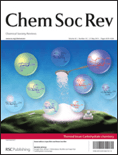
CHEMICAL SOCIETY REVIEWS
Delivering Insightful Reviews for the Chemistry CommunityCHEMICAL SOCIETY REVIEWS, published by the Royal Society of Chemistry, serves as an essential platform for researchers, professionals, and students in the field of chemistry. Since its inception in 1972, this prestigious journal has maintained its status as a leading publication, currently positioned in the Q1 category for Chemistry (miscellaneous) and ranking #2 out of 408 journals in the field of General Chemistry on Scopus, with an impressive 99th percentile recognition. With a focus on comprehensive reviews that synthesize key advancements and methodologies, it promotes open discussion and critical analysis crucial for driving innovation within the discipline. Although it operates under a subscription model, the journal strives to foster knowledge dissemination among the global chemistry community, ensuring accessibility to cutting-edge research and insights that shape the future of chemical sciences through its extensive array of articles.
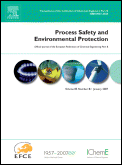
PROCESS SAFETY AND ENVIRONMENTAL PROTECTION
Unraveling the complexities of risk and reliability in engineering.PROCESS SAFETY AND ENVIRONMENTAL PROTECTION, published by Elsevier, is a premier academic journal dedicated to advancing the fields of chemical engineering, environmental science, and safety management. With an impressive impact factor, this esteemed journal undergoes a meticulous peer-review process and serves as a vital platform for researchers, professionals, and students seeking to disseminate cutting-edge research and innovative practices. Submissions are welcome in a wide scope of topics related to safety, risk, reliability, and environmental engineering, demonstrating its influence as a Q1 journal across multiple categories, including Environmental Chemistry and Safety, Risk, Reliability and Quality. By providing a rigorous analysis of current challenges and solutions in the domain since its inception in 1990, it continues to foster interdisciplinary collaboration and practical applications in the United Kingdom and beyond. With the journal not currently offering Open Access options, subscribers gain exclusive access to pivotal insights that shape industry standards and drive advancements in sustainable practices.

SusMat
Elevating Knowledge in Sustainable MaterialsSusMat is a pioneering open access journal published by WILEY, with an ISSN of 2766-8479 and E-ISSN of 2692-4552, dedicated to advancing knowledge in the field of sustainable materials and technologies. Launched in 2021, SusMat aims to provide a vibrant platform for researchers, professionals, and students from interdisciplinary backgrounds to explore and disseminate innovative materials and strategies that promote sustainability. With an emphasis on high-quality, peer-reviewed research, this journal contributes to the growing body of literature essential for addressing contemporary environmental challenges. Furthermore, the open access format enhances accessibility and dissemination of knowledge, encouraging broader engagement and collaboration within the scientific community. Discover the future of sustainable materials at SusMat, where impactful research meets global sustainability goals.

Applied Chemistry for Engineering
Catalyzing Progress in Chemical EngineeringApplied Chemistry for Engineering, published by the Korean Society of Industrial and Engineering Chemistry, is a vital resource for researchers and professionals engaged in the realms of chemical engineering and applied chemistry. With an ISSN of 1225-0112 and an E-ISSN of 1228-4505, this journal serves as a platform for innovative research that spans diverse applications within these fields. Although currently not classified under open access, it provides critical insights and advancements to its audience, contributing to the ongoing discourse in the industry. The journal's significance is underscored by its rankings in Scopus, where it resides in the Q4 category for both Chemical Engineering and Chemistry, evidencing its commitment to publishing relevant studies despite its emerging status. As it continues to grow through the converged years from 2007 to 2024, Applied Chemistry for Engineering aims to bridge the gap between theoretical research and practical engineering solutions, making it an essential tool for students, researchers, and professionals alike.
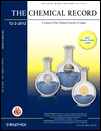
CHEMICAL RECORD
Bridging Gaps with Cutting-Edge Chemical ResearchThe Chemical Record is a prestigious peer-reviewed journal published by WILEY-V C H VERLAG GMBH, focusing on innovative research and developments across the diverse and evolving fields of chemistry and biochemistry. With an esteemed 2023 Impact Factor and recognized as a Q1 journal in several categories—including Biochemistry, Chemical Engineering, and Materials Chemistry—The Chemical Record stands as a critical resource for researchers, professionals, and students aiming to disseminate and acquire knowledge in these disciplines. The journal's engaging scope covers contemporary topics and fosters collaboration within the global scientific community, ensuring accessibility to cutting-edge research. By publishing articles that meet the highest standards of scholarship, it has earned a significant place within the academic ecosystem, as reflected in its strong Scopus rankings. Although The Chemical Record operates without open access, it remains deeply committed to advancing the field of chemistry through rigorous and impactful publications that bridge gaps between theory and practice.

TRANSACTIONS OF TIANJIN UNIVERSITY
Connecting scholars to drive impactful research forward.TRANSACTIONS OF TIANJIN UNIVERSITY, published by SpringerNature, is a premier journal in the field of multidisciplinary research, boasting an impressive Q1 ranking and placing within the top 93rd percentile of its category according to Scopus. With an ISSN of 1006-4982 and E-ISSN of 1995-8196, this journal facilitates insightful and innovative contributions that span various disciplines, making it a vital resource for academics and professionals alike. Established in 2004, the journal continues to thrive with a commitment to advancing knowledge and fostering collaboration in scientific inquiry. TRANSACTIONS OF TIANJIN UNIVERSITY aligns with global research trends and offers a platform for the dissemination of high-quality research findings, promoting interdisciplinary approaches to solving complex problems. Located in China, its influence extends well beyond national borders, appealing to a diverse readership eager to explore the latest advancements and discussions in the multidisciplinary arena.
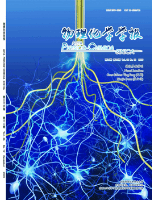
ACTA PHYSICO-CHIMICA SINICA
Elevating knowledge in chemistry through peer-reviewed excellence.ACTA PHYSICO-CHIMICA SINICA, published by PEKING UNIV PRESS, is a prestigious journal focused on the fields of Physical and Theoretical Chemistry, boasting an impressive impact factor as reflected in its 2023 Q1 ranking in this domain, placing it among the top 5% of journals in the subject area. With its origins dating back to 1996, the journal serves as a vital platform for the dissemination of cutting-edge research, encompassing a broad range of topics from molecular dynamics to thermodynamics and quantum chemistry. Researchers, professionals, and students are provided with valuable insights through peer-reviewed articles, making it an indispensable resource for advancing knowledge and sparking innovation in the discipline. While this journal does not offer Open Access options, its rigorous editorial standards and influential contributions continue to shape the landscape of Physical and Theoretical Chemistry globally. For submissions or further information, please refer to the editorial office at Peking University, Chemistry Building, Beijing, China.